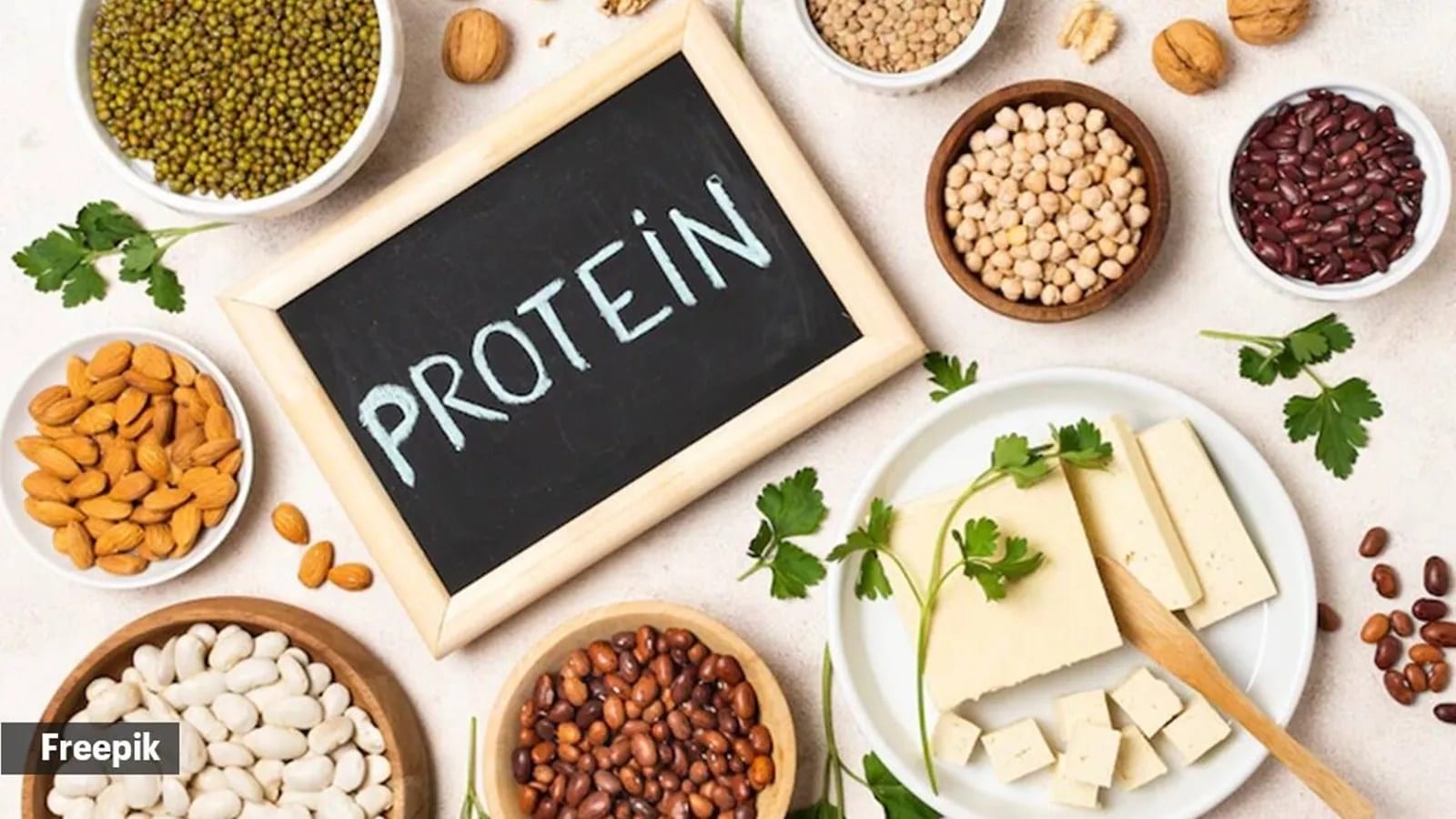It’s time to bust a myth, one that’s often discussed: the direct relationship between protein intake and the level of uric acid in the body. If you believe that, too, trust us, you are not alone. So, what is the truth?
According to nutritionist Amita Gadre, uric acid levels increase due to foods high in purines, not proteins. “Purine and protein are as different as chalk and cheese, so there is no need to shy away from that protein-packed meal! However, moderation is key!” she mentioned on Instagram.
 How is your protein intake? (Source: Freepik)
How is your protein intake? (Source: Freepik)Let’s learn more.
Dr Haricharan G, senior consultant physician, HoD, internal medicine, Gleneagles Hospitals, Lakdi Ka Pul, Hyderabad, said uric acid is a byproduct of purine metabolism, and purines are found in many foods, including some high-protein foods. “However, not all proteins are equally problematic,” said Dr Haricharan.
Notably, uric acid is a chemical formed when purines break down. “High uric acid levels can increase the risk of developing health issues like gout, kidney stones, and arthritis,” said Dr Haricharan.
Animal proteins, such as red meat, organ meats, and certain types of seafood (like sardines and anchovies), are high in purines and can contribute to elevated uric acid levels. “Limiting these sources can help manage uric acid. Plant-based proteins (like beans, lentils, and tofu) generally contain lower levels of purines and are less likely to increase uric acid levels significantly,” said Dr Haricharan.
While it’s essential to limit high-purine foods, avoiding protein entirely could lead to nutritional deficiencies and muscle loss. “It is not necessary to completely avoid protein if you have high uric acid levels, but it is important to be mindful of the types and amounts of protein you consume. Certain protein sources, particularly those high in purines, can contribute to increased uric acid levels,” said Riya Desai, senior dietitian, Wockhardt Hospitals, Mira Road.
Story continues below this ad
Instead, focus on a balanced diet that includes moderate amounts of low-purine protein sources, such as dairy products and specific plant-based proteins. Additionally, staying well-hydrated and reducing alcohol and sugary beverages, which can increase uric acid, is also crucial.
Dr Aashish Chaudhry, managing director, senior consultant, and head of the department of orthopaedics and joint replacement, Aakash Healthcare, said that to reduce uric acid concentration in the blood, it is advisable to avoid alcohol, processed foods, and drinks, and reduce consumption of red meats.
Desai listed foods that are high in purines:
1. Red meat: Beef, lamb, and pork.
2. Organ meats: Liver, kidneys, and other organ meats.
3. Certain seafood: Anchovies, sardines, mussels, and scallops.
4. Sugary drinks: Sodas and sweetened beverages containing high-fructose corn syrup can significantly raise uric acid levels.
5. Processed foods: Foods high in sugar and refined carbohydrates can also contribute to increased uric acid.
6. Alcohol: Alcohol, particularly beer and distilled liquors, can raise uric acid levels. “Wine is generally considered to have a lesser effect but should still be consumed in moderation,” said Desai.
Always consult with a healthcare professional for personalised dietary advice tailored to your specific health needs.
Story continues below this ad
DISCLAIMER: This article is based on information from the public domain and/or the experts we spoke to. Always consult your health practitioner before starting any routine.



